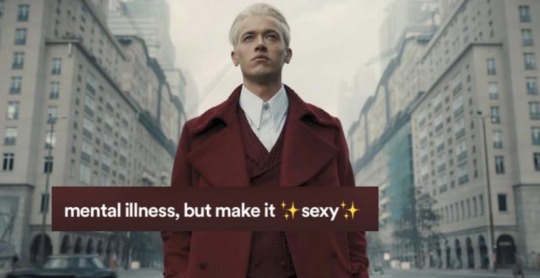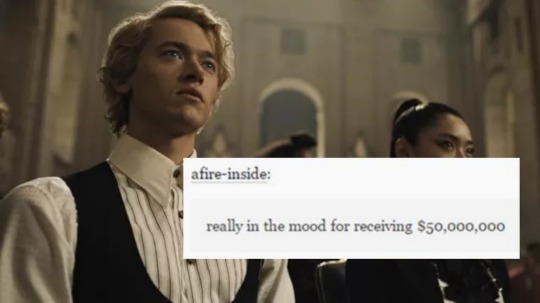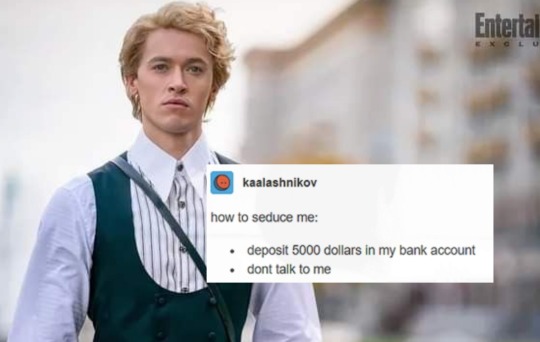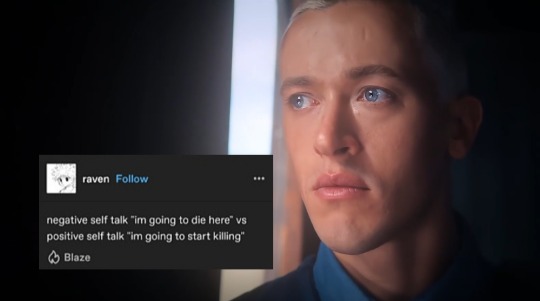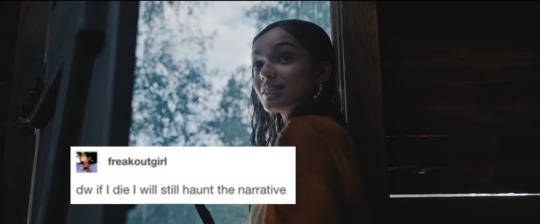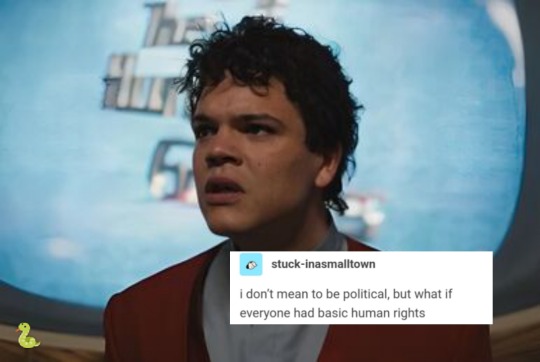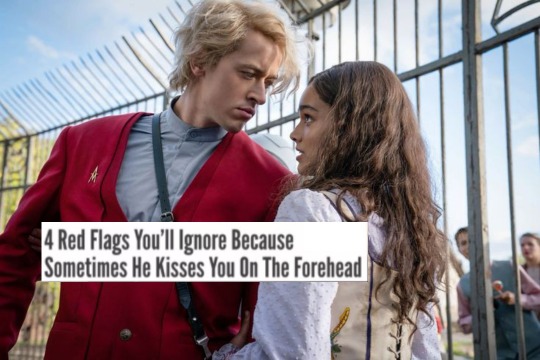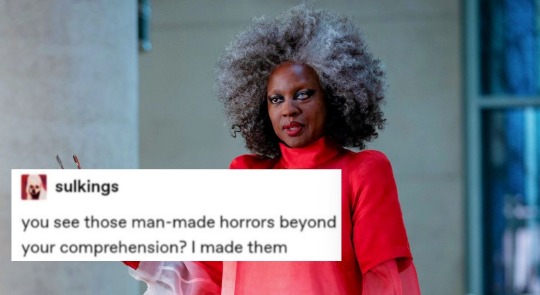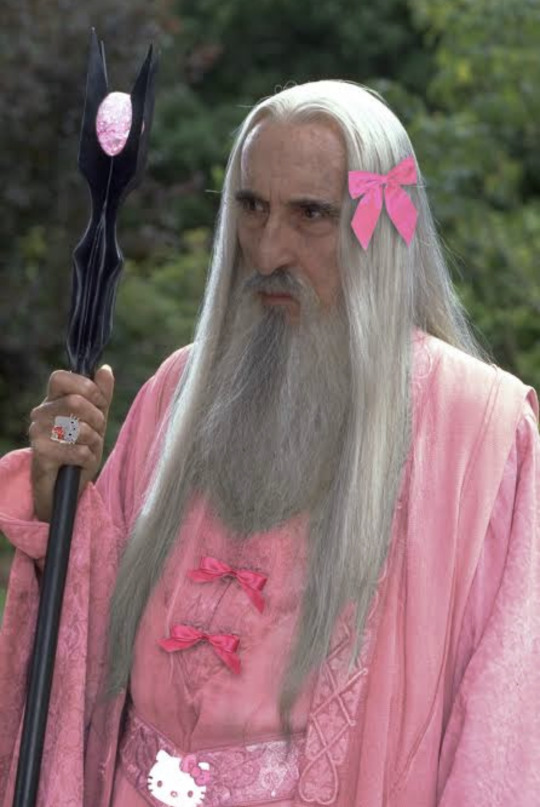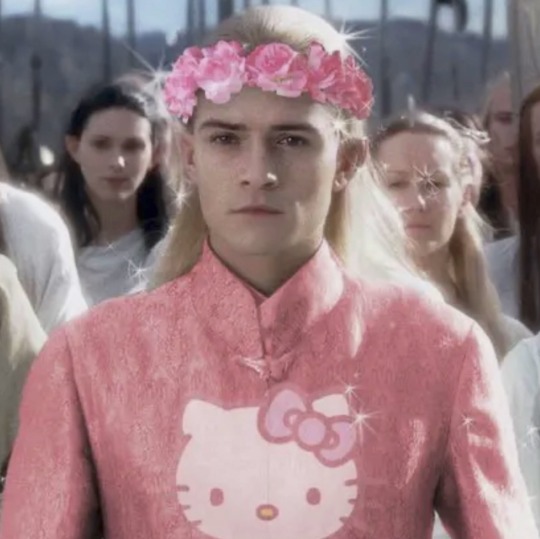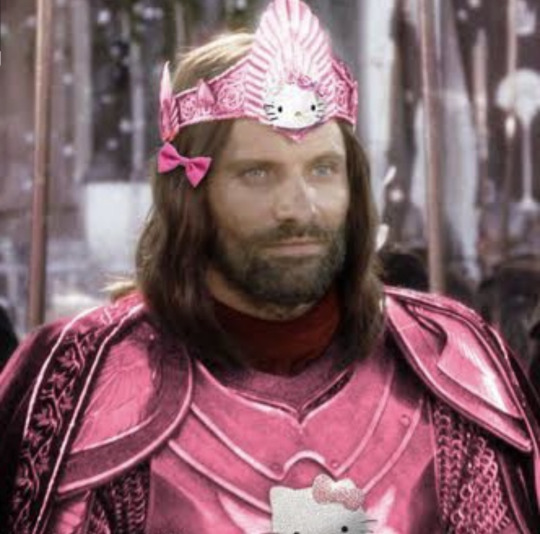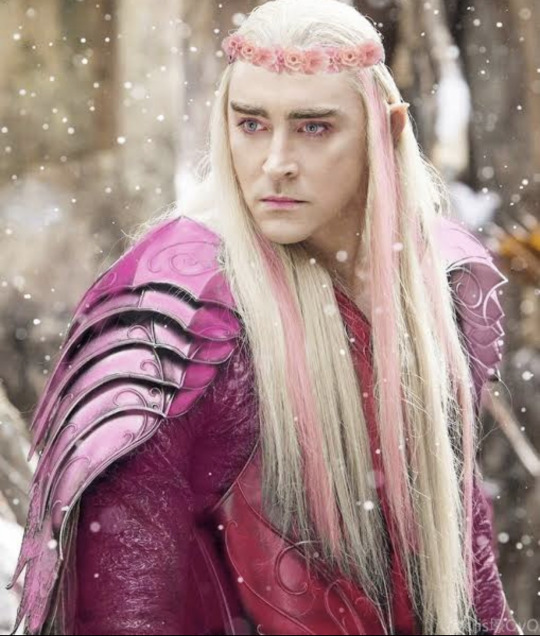Text
I think the most radical thing the hunger games does is tell young people that the most revolutionary thing you can do is have unconditional love for humanity. Katniss throughout the entire series is guided by a deep sense of compassion for the people around her. It is what causes her to volunteer, to bury rue, to mercy kill cato, its why she tries to save peeta, why finnick telling her to remember who the real enemy is works, and even though her compassion for the larger world falters when peeta is kidnapped, it comes back when she visits hospitals and asks for mercy for other victors and ultimately, it is love and belief in a better humanity that makes her kill coin. Through it all, she maintains an unfaltering belief in the fundemental goodness of humanity, which is diametrically opposed to dr gaul's and snow's worldview. Peeta is even more unwaveringly compassionate
So the series tells young people that the most revolutionary thing you can be is compassionate. Let compassion drive your politics. Let yourself believe in the fundemental goodness of people. And i think that's deeply important in a world that touts the superiority of pure reason or logic, to allow yourself to be guided by something as emotional as compassion. Katniss everdeen tells us that your politics should be rooted in compassion in a world that thinks detatchment or cynicism is intelligence and i think thats v cool
20K notes
·
View notes
Text
sorry but snow is such a well written iconic villain and donald sutherland performs him so fucking good it's almost hilarious how i start practically foaming at the mouth every time the man opens his mouth to say something deplorable in those movies, like he's so utterly and despicably wrong about almost every crucial thing from katniss and peeta's relationship to human nature as a whole and yet the second he starts talking about how hope is the only thing stronger than fear and how you have to allow a little hope but control it so its spark doesn't grow into revolution and how it's the things we love the most that destroy us you bet your ass i am on the floor screaming crying throwing up because that is my psychotic mustache-twirling villain RIGHT THERE
1K notes
·
View notes
Text
will never forget seeing the original hunger games movie with my mom when i was in elementary school and her being like oh my god donald sutherland is in this?? and me as a kid being like who cares about that old man katniss is here. and now as an adult i watch the hunger games movies and go oh my god donald sutherland is in this
325 notes
·
View notes
Text
The Ballad of Songbirds and Snakes Spoilers
Lucy Gray Baird wins her hunger games because Snow snuck her rat poison and messed with the snakes’ senses. Haymitch wins his hunger games by using the arena border itself to his advantage. Katniss and Peeta win because of the nightlock drama causing a rule change of a rule change. I don’t know what I’m trying to say with this just that District 12 is such a breeding ground for rebellion. In a way they all refused to play the Capitol’s games
848 notes
·
View notes
Text
me, 14 and reading the end of mockingjay:
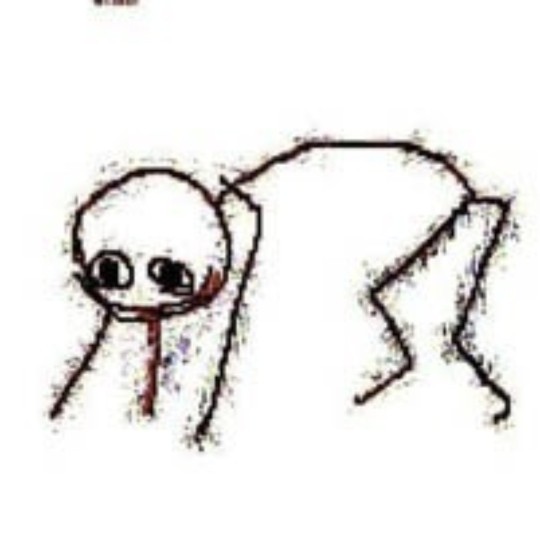
me, 24 and reading the end of the ballad of songbirds and snakes:

322 notes
·
View notes
Text
something that kills me about the hunger games is that they’re supposed to show that the capitol is necessary, that they keep people civilised because humans are inherently violent creatures and then the kids get to the arena and they care for each other. lamina mercy kills marcus, reaper gathers and covers their bodies, lucy gray stays with jessup as he dies, haymitch holds maysilee’s hand, katniss sings to rue and covers her in flowers, thresh lets katniss live, cato begs clove to come back to him, and katniss nurses peeta back to health. because these kids don’t want to kill each other. and it flies directly in the face of exactly what the hunger games stand for and still they do it. because people are good, there are just some who choose to do bad.
8K notes
·
View notes
Text

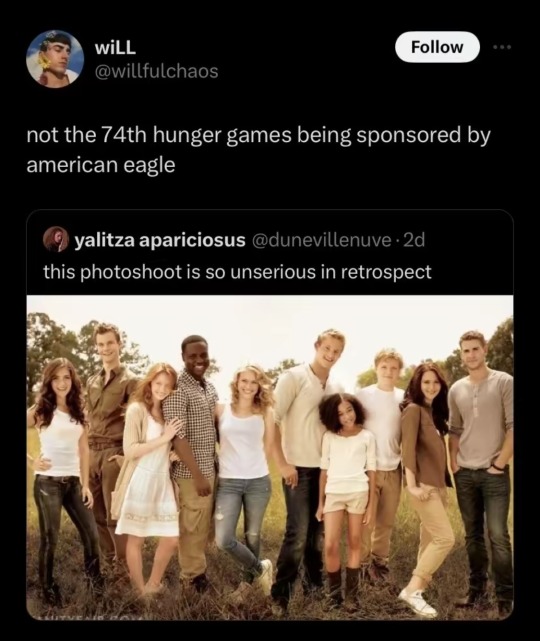

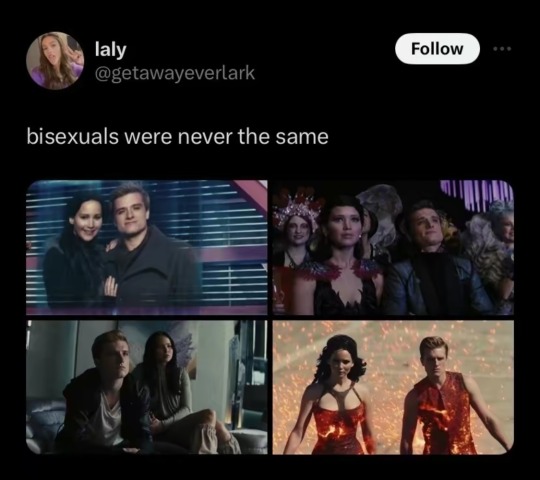
i wake up thanking god every day that a tweet calling peeta motherrr went viral🧎♀️
5K notes
·
View notes
Text
the ballad of songbirds and snakes goodreads updates: the highlights
since y’all were so sweet n funny about my fourth wing updates i figured i’d shared these although unfortunately there are significantly less
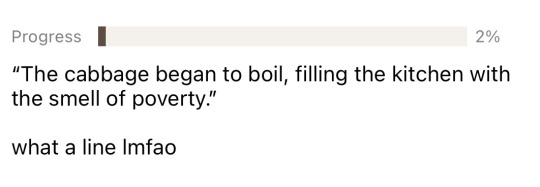







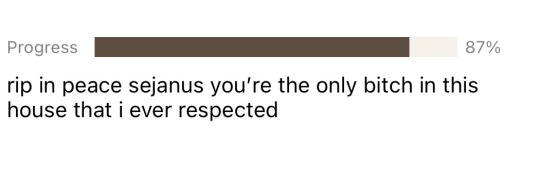
808 notes
·
View notes
Text
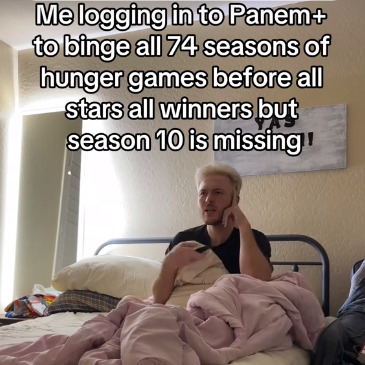

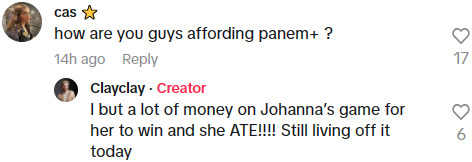

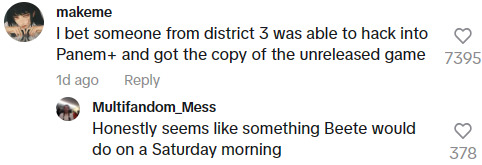




sadly the only copy of s10 of thg i found is in the spanish dub but the only thing theyre saying is i love you and i know thats not right so can someone hook me up with their panem plus pleasee
27K notes
·
View notes
Text
THG is the only pop culture story I can think of where the heroes (Katniss and Peeta) are disabled* and their happy ending doesn’t require that they be “fixed” in order to be happy. IMO, part of why there’s such controversy over the ending of the books in particular is that Collins wrote the pov of Katniss as a woman who is content and loves her life and her spouse and kids, but she’s still very clearly mentally ill (and arguably somewhere on the spectrum). She has coping strategies and her life is good, but she will never be “normal” and Collins doesn’t let the audience think that.
The one part, where she talks about how she handles the darker days, when she’s really struggling, never fails to move me:
I’ll tell them that on bad mornings, it feels impossible to take pleasure in anything because I’m afraid it could be taken away. That’s when I make a list in my head of every act of goodness I’ve seen someone do. It’s like a game. Repetitive. Even a little tedious after more than twenty years. But there are much worse games to play. (Mockingjay, 332)
It’s hard to express how important that is to me. Someone doesn’t have to be “normal” to lead a good life. Someone doesn’t have to be “normal” to have a life worth living, to give and receive love in good ways.
And, so, when people look at the villain in the prequel and say “he’s just crazy, that’s why he’s evil. He’s just a psycho, he’s nuts,” it’s so out of place, it’s so dissonant to me – I think that’s absolutely not the kind of story Collins would tell, given her prior handling of disability.
I don’t think she’s suddenly turned into a Victorian writer where you can know someone is evil because they’re disabled because the writer thinks disabled people are warped creatures incapable of doing anything but bringing evil into the world. And the way people assert this, as if it’s the pure, wholesome, most politically advanced reading of the prequel, is just - it doesn’t compute for me. I don’t understand how people get there.
I studied (for years) the treatment of mentally ill people in the mid-20th Century US. It was horrific. US forced sterilization and eugenics laws actually inspired N/azi Germany’s forced sterilization, eugenics, and mass murder campaigns against mentally ill and disabled people. Nice, normal people have repeatedly convinced themselves that torturing and killing disabled people is how they will “purify” their society - they’ve done great evil in the name of rooting out the people evil is supposedly located within biologically.
Is it so hard to believe that people with normal brains do evil? Is it truly so impossible? Even in a story where the Games are about how a lot of people, the majority of whom are neurotypical, can be brought, via media presentation and entertainment techniques, into taking pleasure in their participation in evil? It’s so hard to fathom that evil can’t simply be located in someone being “psycho”?
Ballad already has Dr Gaul, who is evil and clearly neurodivergent. If Snow is too then the message starts to get kind of worrying? IMO, Coriolanus is more effective as a kind of “everyman” as an 18 year old - an example of the incentive structures (rewards and punishments) and propaganda that motivate “normal” people to go along. Of course, he will later become something far worse than that, someone who takes control of this thing, who uses his intimate knowledge of it and his insight into other “normal” people to make it worse, but that’s not the part of his life we see the most of. The part the book focuses on provides what I consider a powerful depiction of how ordinary people are acculturated into corrupt societies.
It’s fiction so there’s all kinds of interpretations that the text can support and exploring those is good. It’s a stronger text because it has ambiguities and can be interpreted more than one way. But the intensity of some of the rhetoric is an unsettling contrast to what I’ve thought, for over a decade, Collins’ themes and pov are as a writer.
*Shame on the films for removing Peeta’s physical disability, though; in the books he lost a leg during their first Games
144 notes
·
View notes
Text
Ballad of Songbirds and Snakes makes the main series of The Hunger Games hit better because it's bookended by these two young people at the birth and death of the Games. Coriolanus choosing to become part of this thing, keep it alive when it was waning in power, and make it the effective tool of media/social control it became and Katniss choosing to use her one arrow, her one shot, to end the Games and Coin rather than take personal revenge on Snow.
Both young people are, in their own ways, ordinary. Collins never leaned into the super special YA lead trope. But Katniss is a young person whose inner compass points north and her inner "no" is so strong and that (at the right moment) enables the death of the Games and the whole social order they embodied and reflected. And Coriolanus is someone who (at another key moment) chooses to harden his heart and take the easy path and walking that comfortable path over decades is the mundane seed of evil.
I think it's important that both young people are living in wartime and influence the direction of things in a postwar moment, when where things will go is up in the air. I'm sure tons of other folks had similar choices to make--perhaps people who were even more exceptional in certain ways--but they weren't standing at just the right tipping point and Katniss and Coriolanus were.
As Katniss puts it when Coin invites her and the other surviving Victors to vote for a new Games using the Capitol's children:
Was it like this then? Seventy-five years or so ago? Did a group of people sit around and cast their votes on initiating the Hunger Games? Was there dissent? Did someone make a case for mercy that was beaten down by the calls for the deaths of the districts’ children? The scent of Snow’s rose curls up into my nose, down into my throat, squeezing it tight with despair. All those people I loved, dead, and we are discussing the next Hunger Games in an attempt to avoid wasting life. Nothing has changed. Nothing will ever change now. (315)
And that's why Katniss kills Coin rather than Snow at the end. His 75 year old world is gone. A new world is coming to birth (like it was when he was Katniss' age) and she knows that it must not be the world Coin wants. She doesn't know a lot, but she knows that and acts on it.
The timeline of the books isn't of Panem's government in general, but of the Games itself, and it is bookended by these two young people and their choices, to bring it alive or to shoot it dead. Which is why Collins told the story that she told in Ballad - it's not about Haymitch's games or whatever else people want, because that's not the origin story of this thing that Katniss ends, it's not the other bookend of the story, it doesn't reinforce or enhance Katniss' story the same way. Coriolanus' story does.
All of this is why a "born evil" interpretation of him or saying he and Lucy Gray didn't actually love each other compromises the themes of the series IMO. Coriolanus and Katniss have to have real choices made as people who could have chosen another path, and that means he has to have an actual conscience he chose to sear and numb and Katniss has to be someone capable of walking a crueler path, which is why the commonalities she has with Gale and that side of her needs to be clear as well.
They're both kids who are ordinary in some ways and exceptional in others, but not superpowered, they're human. And they both have ordinary human capacities for good and evil. And they both fall in star-crossed love. But then they choose very different things. And so it goes. Coriolanus helps bring a monster to life; Katniss slays it.
Ballad makes the main series ending even better:
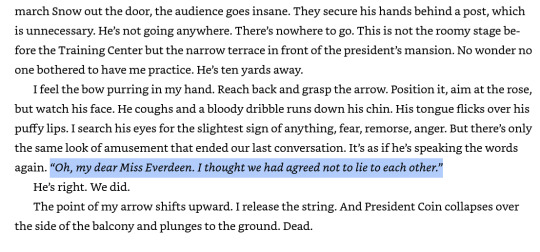
I love the two of them looking across time, across these different deciding moments, at each other, and Katniss making her choice.
159 notes
·
View notes
Text
WHO was going to tell me that the Ballad of Lucy Gray Baird is set to the tune of Streets of Laredo/The Unfortunate Rake??!?!!? And it’s WRITTEN LIKE THAT IN THE BOOK?!?!???!

Like the fact that it’s supposed to be her lamenting her own impending death?? And she chose the most famous folk song about someone lamenting their impending death??? Hello?!??
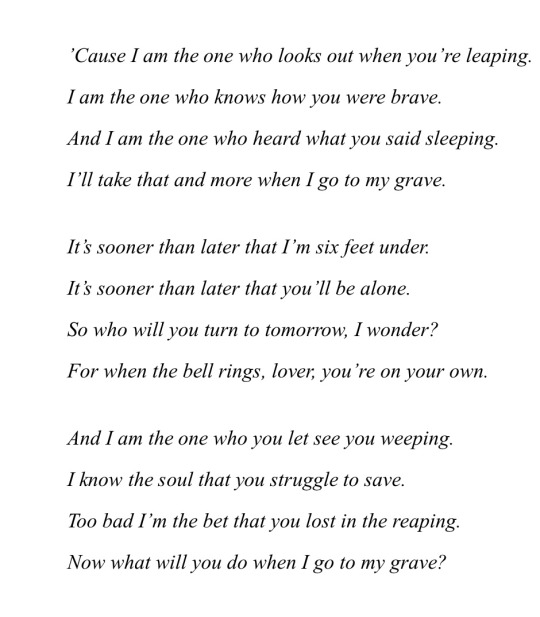
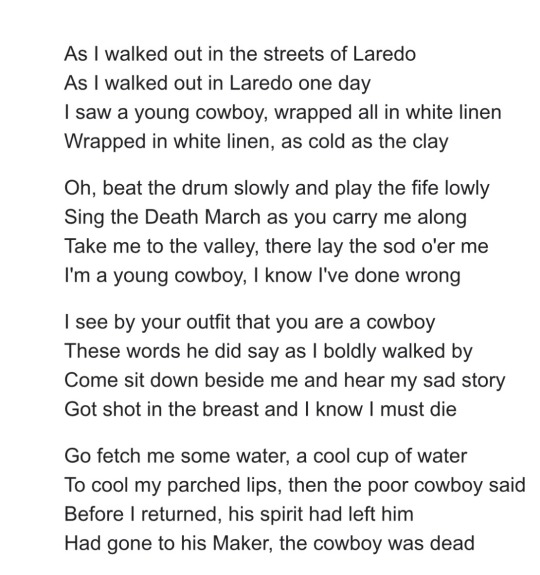
368 notes
·
View notes
Text
lucy gray baird’s philosophy
I want to “yes, and” this great meta post by @burst-of-iridescent. Specifically this part:
by the end of the book, coriolanus gives in fully to dr gaul’s way of thinking simply because it excuses him from accepting blame for his actions. if he killed sejanus, it’s because he had no choice. if he betrayed lucy gray, it’s because she would’ve betrayed him first. coriolanus refuses to believe in the goodness of humanity because that would have meant accepting the goodness that existed within him, and with that came the potential for making a different, better choice - potential that he knew, deep down, he had wasted. attributing his crimes to an innate evil that no one can overcome means that he can’t be held accountable, because it’s out of his control.
This got me thinking about how much Lucy Gray’s worldview rejects of this way of thinking (and of a Calvinist*/ableist “some people are just born evil” pov people try to impose on the text, which people think is condemning him but actually… accidentally agrees with him that he was born evil and therefore can’t help it??????). The book begins with several quotes chosen by the author, but I believe the one that represents Lucy Gray’s worldview is Rousseau, who believed people were born with fundamental goodness.
Here’s a source on him:

(Stanford Encyclopedia of Philosophy)
And here’s the quote Collins opens with:
“Man is born free; and everywhere he is in chains.”
— Jean-Jacques Rousseau, The Social Contract, 1762
That’s Lucy Gray’s pov she’s come to through living and reflecting as an artist; someone can disagree with it (of course, all of these questions are open for endless debate; they have been debated endlessly!) however, it’s important to respect that is where she’s coming from, not being foolish or naive. It is a worthy pov that should be respected, even if you disagree. And that she came to this pov through a hard life and from much thinking and she expresses it beautifully in her art.
Here’s the key exchange from the book, after Coriolanus has taken on the idea that people are just awful and her articulating her philosophy in response:
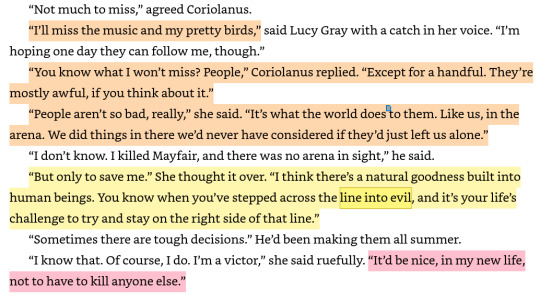
(Ballad, 495)
She’s not naive. She recognizes the nuance that Rousseau does, that society shapes us. And Panem is pretty clearly a society led by people applying all the pressures they can think of on people toward evil. (And, after his heel turn, Coriolanus’ is going to innovate some new pressures…) Clearly there are situations and circumstances that form us before we have much say in it, but that’s not the same as being born evil.
The difference between inherent goodness and a corrupt society is, for Lucy Gray, a lot of hard work. It’s a struggle. This repudiates both the version of “born evil” Coriolanus himself takes on, which relieves him of responsibility, and the self-righteous, Calvinist and/or ableist pov people keep arguing for, which makes “normal” people feel like they can be sure they’re good (and ignore how we are all complicit in evil to some degree or another) because they have a “good” normal brain or they were just born so pure as a soul predestined for heaven. No, for her, everyone has to do the work. To her it’s everyone’s “life’s challenge to try and stay on the right side of that line.”
Even more pointedly, the love song she wrote him before his betrayal, “Pure as the Driven Snow,” articulates her philosophy in the opening lines:

(Ballad, 481)
Again, we have her personal focus on the work of “staying on the right side” of good and evil after being born good into evil circumstances. She knows it hurts; she’s led a hard life herself. “It’s rough as a bair” to do that work, it’s “like walkin’ through fire.” But it is doable.
Lucy Gray meant it as a love song but IMO “Pure as the Driven Snow” ends up a lament for the boy Coriolanus was and her love that he betrayed when he betrayed himself. And it is a direct rejection of his excuses, it is inadvertently reading him for filth for the lies he tells himself that all the world is the Games arena, all people are selfish and bad, and he isn’t to blame for what he’s done because he just wants to come out on top/be the victor of this “natural” “war of all against all” that is Gaul’s philosophy (related to the Hobbes quote Collins begins with; I wrote a meta on that here) that he adopts.
I see her demeaned as a foolish girl who just “like bad boys” and I get so frustrated. I also get frustrated by the view that she must not have ever been sincere in loving or trusting him because IF SHE WAS then she would be a fool and his betrayal would somehow be her fault. And she’d reject the idea that she’s “good” just because she’s so pure or that anyone can claim we’re good without doing a lot of hard work.

(Ballad, 482)
She is so thoughtful and interesting as a character. And she didn’t just “like bad boys” - Coriolanus showed only his good side to her until the very end, once he’d decided to kill that part of himself. She had no way of knowing. Sometimes you trust someone and they betray you, it doesn’t make you wrong, the shame is all theirs.
*Strict Calvinist predestination is some people are just predetermined to be bound for heaven and some for hell, some people are just born good and others are born bad. A lot of people in fandom seem to love Calvinism idk why. The ableism bit of this should be self-evident: there is no such thing as a “bad” brain type completely incapable of morality or a “good” brain and neurodivergence is not the source of all evil!
125 notes
·
View notes
Text

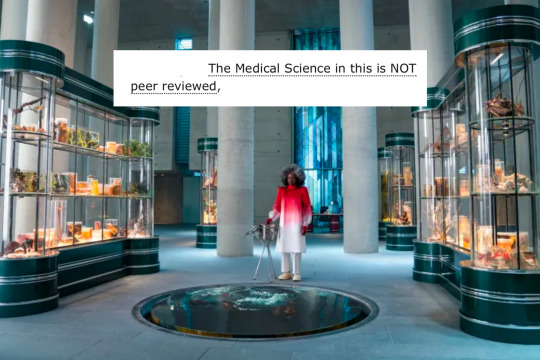
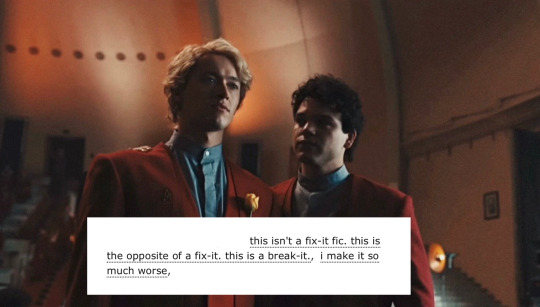
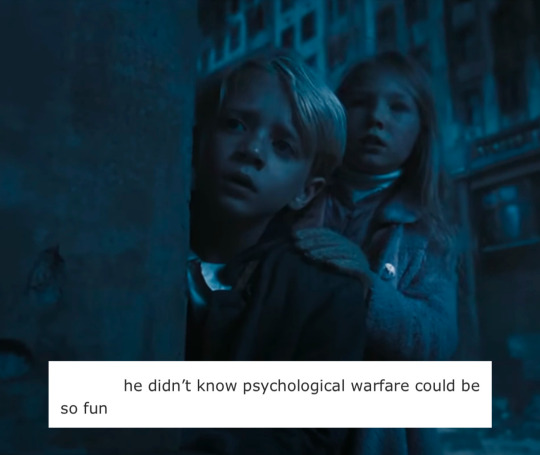
as a scientist, i can confirm i did not peer review those experiments
3K notes
·
View notes
